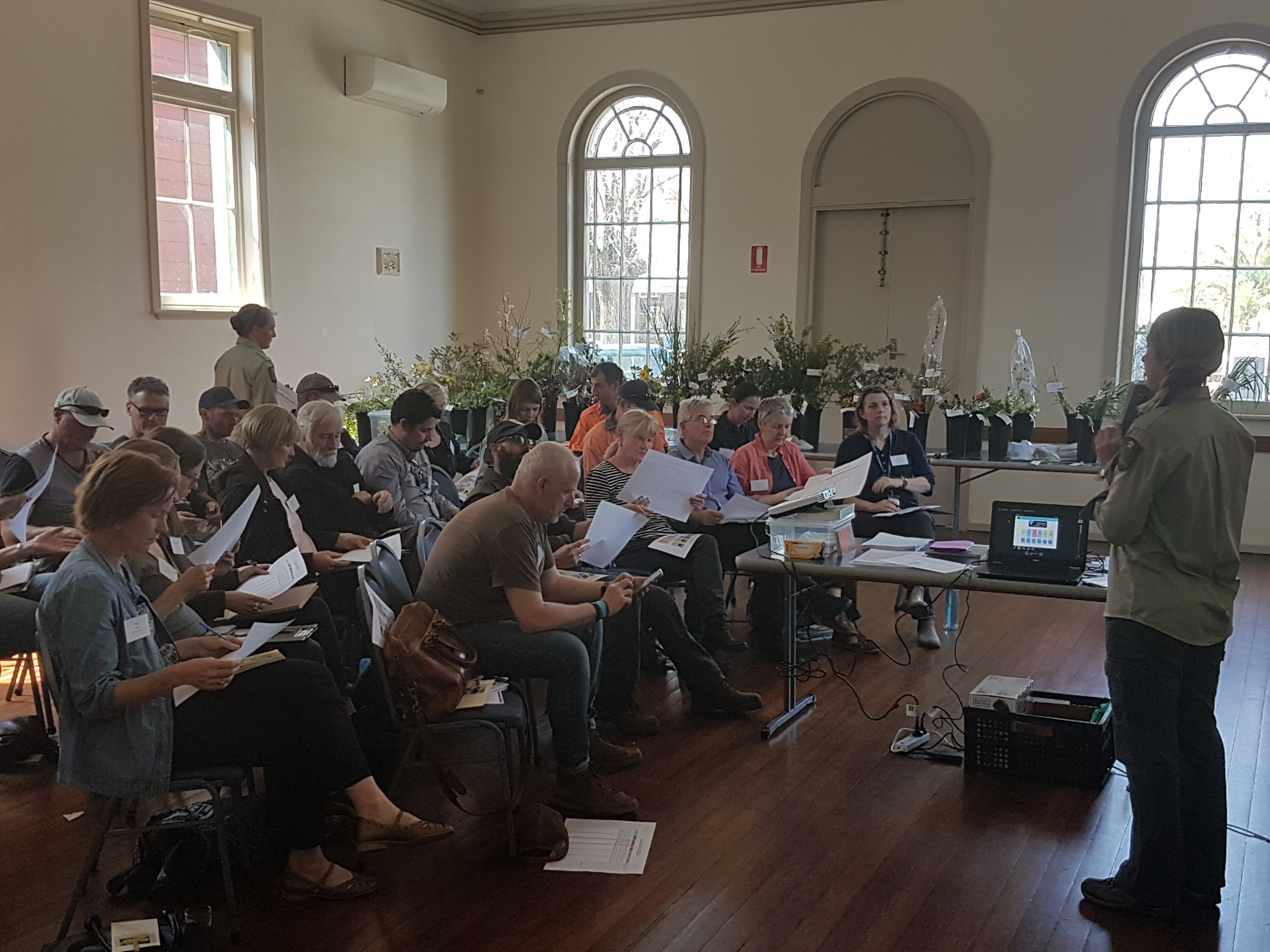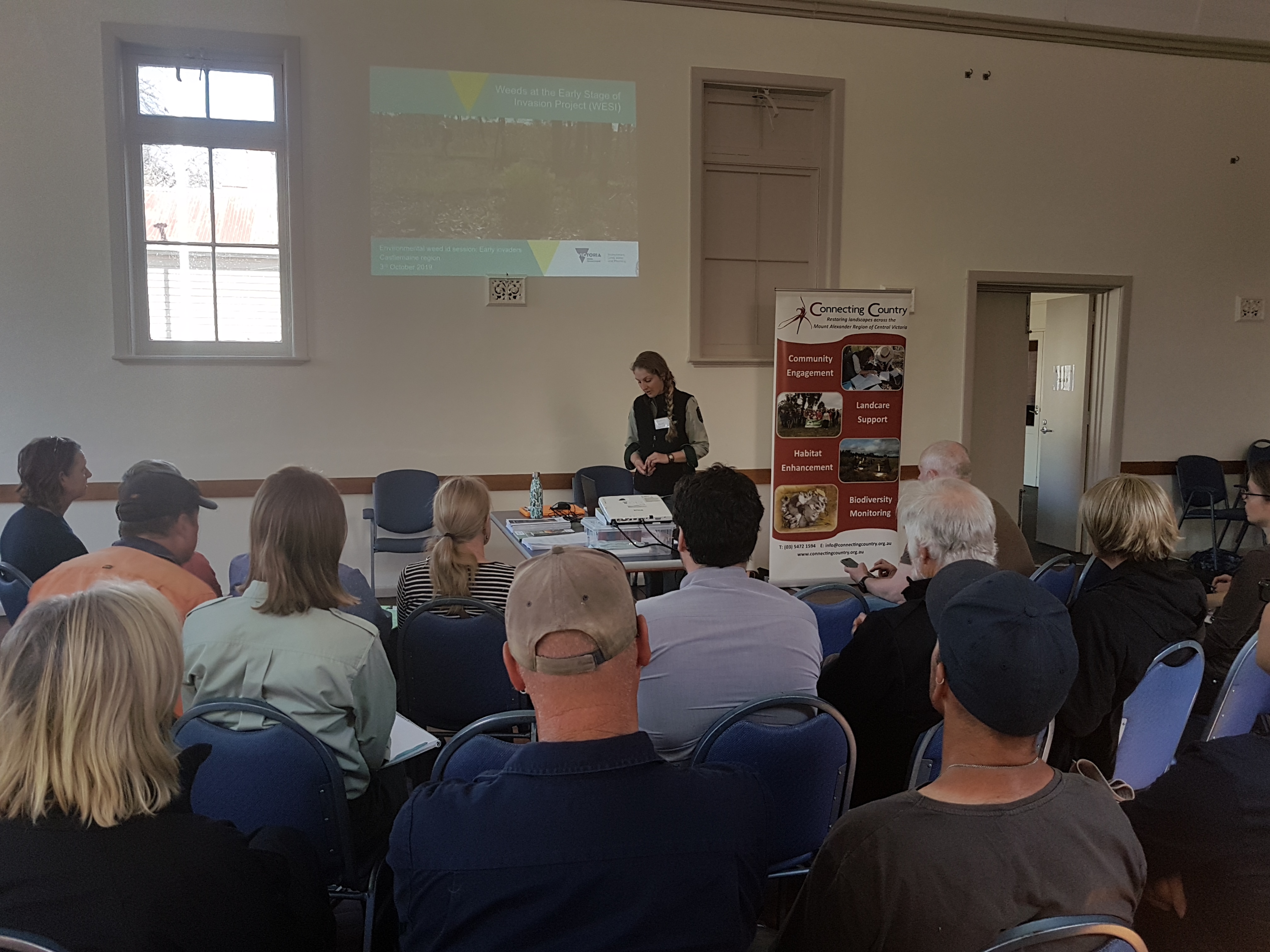Community trained in early invaders
Posted on 9 October, 2019 by Ivan
The Weeds at the Early Stage of Invasion (WESI) Project, together with Connecting Country, had a strong turnout for their training event last Thursday 3 October 2019 in Newstead VIC. The education event, part of our Habitat Health Check project, focused on identifying environmental weeds that are not yet established in our region, but have the potential to grow their distribution.
The session targeted identification of some early-invader environmental weeds relevant to the Mount Alexander region, including Asparagus fern (Asparagus scandens), White Spanish Broom (Cytisus multiflorus), Broad kernel Espartillo (Achnatherum caudata), Dropping Tree-Pear (Opuntia monacantha), Buffel Grass (Cenchrus ciliaris) and Old Man’s Beard (Clematis vitalba).
Early invaders are plants that have naturalised and started to spread. When spread has just begun, such plants are localised and generally encountered only by chance. Coordinated management intervention (i.e., eradication or containment) is feasible at this stage, due to their highly restricted distributions.
The training did an excellent job in alerting all attendees to the threats of many common garden varieties that can escape under the right conditions and impact surrounding landscapes. All 30 participants learned how to identify these plants, how to record and photograph them, and how to treat and survey the area.
The session also provided samples of another 25 plants that are invasive plants in our region, with attendees getting a chance to get up close and personal to the specimens and learn how to identify them from look-a-likes. Kate Blood and Bianca Gold, from the WESI-DEWLP team, showed passion and precision throughout the day and enlightened all who attended in the emerging threats to the regions biodiversity and agriculture. It was heartening to see attendees from the Mount Alexander Shire Council, Coliban Water, Parks Victoria, Landmate, North Central Catchment Management Authority, and many Landcare and community groups from across our region.
The WESI Project focuses on high risk invasive species at the early stage of invasion that threaten biodiversity. The WESI project works mainly with Department of Environment, Land, Water and Planning (DELWP) and Parks Victoria staff looking after public land and biodiversity across Victoria, but also trains community groups and landowners in identifying early invaders.
For more information on the WESI training, please click here. If you would like to be involved in Connecting Country’s monitoring program, please click here.
Here are some photos from the training by Ivan Carter (Connecting Country) and Kate Blood (DELWP).














Leave a Reply